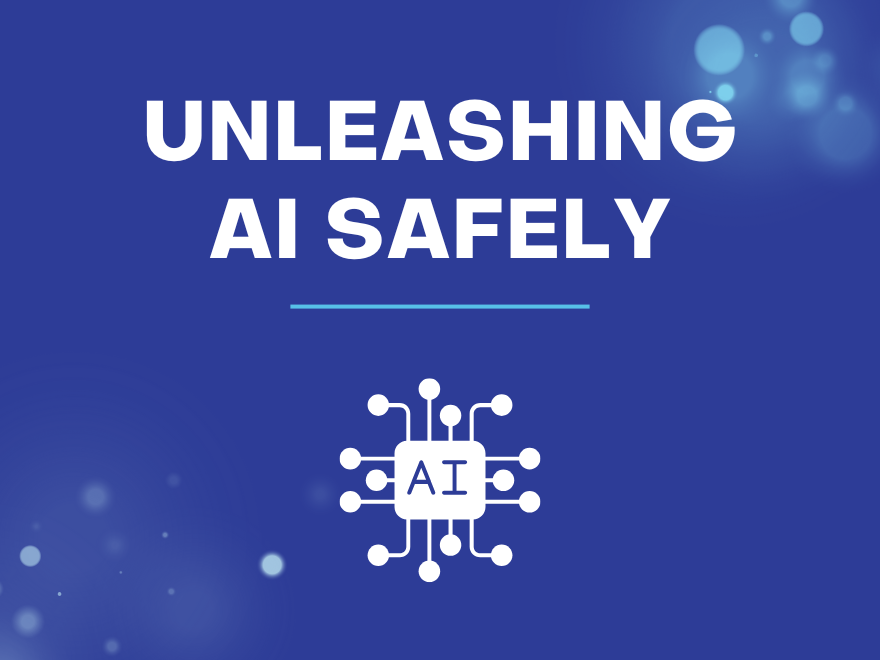
Unleashing AI Safely
AI tools are becoming increasingly popular, with individuals and businesses adopting tools that help with time management and task productivity. While AI tools can be helpful, it’s essential to consider the security risks of sharing sensitive information and data with these tools.
Keeping your information safe
AI tools collect and store large amounts of the information shared with them; this is how they learn and develop their responses. Depending on your AI tool, your user data, conversations, feedback, and location can be collected and even reviewed by human AI trainers. If the AI tool you use experiences a breach, your sensitive information could land in the hands of cybercriminals.
Fake AI designed to trick you
Cybercriminals can also create legitimate AI tools or manipulate those on the market. If they trick you into using their versions of AI tools, you could be sharing information directly with cybercriminals and putting yourself at risk. With these malicious AI tools, cybercriminals can create specialised prompts and inputs designed to manipulate you into sharing sensitive information.
Our TOP tips to stay safe
-Use well-known and secure AI tools. Verify that the AI tools are legitimate and choose those developed with data security in mind.
-Limit the information that you share. Only share details that are necessary for the AI tool to function and exclude any identifying information.
-Do your research. Familiarise yourself with the privacy policies of AI tools to understand the risks to data privacy.
